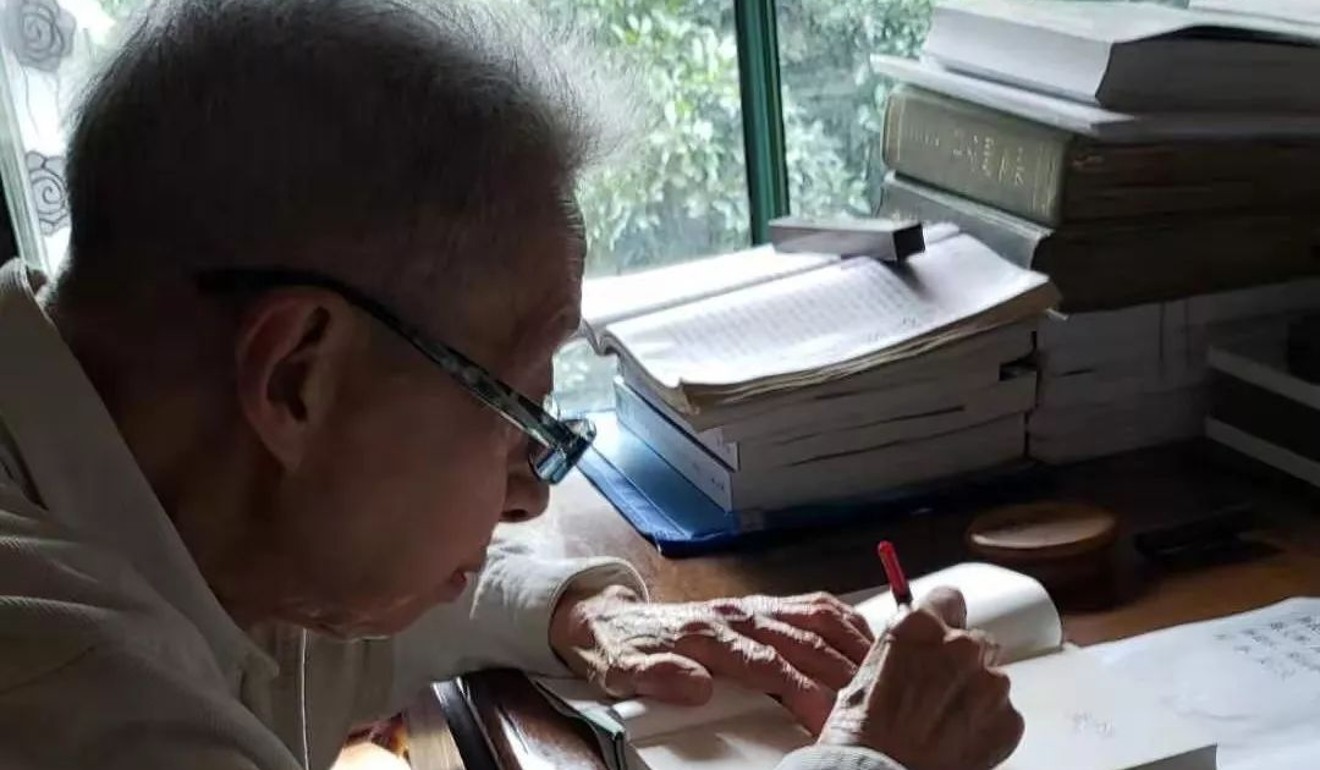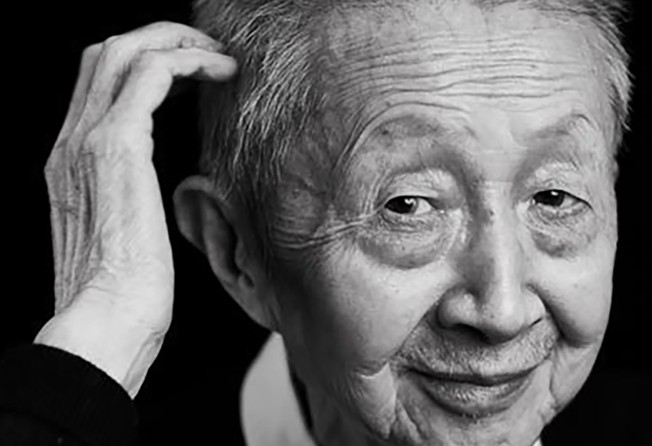
Chinese poet Liu Shahe dies from throat cancer aged 88
- Online fans of writer, who spent two decades in a hard labour camp, pay their respects by quoting a speech about his love for Americans
- Liu was also an outspoken critic of simplified Chinese characters, blaming them for the loss of culture and tradition

Internet users across China have been expressing their grief at the loss of Yu Xuntan – the famed writer and poet best known by his pen name Liu Shahe – who died from throat cancer on Saturday at the age of 88.
And at a time of intense rivalry between China and the United States, it was perhaps fitting that many of his millions of online followers chose to quote from a speech published on the People’s Daily website in 2007, in which he referred to Americans as “the best friend of the Chinese people”.
In the piece, Liu recounted his experience as a teenager in the 1940s helping to build an airport in Guanghan, a small city in southwest China’s Sichuan province, where he was born and died.
The airport provided a base for American planes to launch attacks against the Japanese during World War II.
“When I was young, I only thought of these pilots as brave. I didn’t know how many of them died in the Pacific Ocean,” Liu wrote.
“They are our friends. They died here. I will never feel relieved at their death.”
He described the airmen as “pure and naive”, and remembered how they would look the other way when the local poor people helped themselves to supplies from the American airbase.
And even when China and the US fought on opposite sides during the Korean war, Liu said he never lost his faith in the Americans.
A copy of the speech attracted more than 100,000 views within a day of it being uploaded to WeChat, China’s most popular messaging service, on Saturday.

On Weibo, China’s Twitter-like platform, Sichuan-based writer Xiao Yongle said: “Liu Shahe’s poems are full of philosophy and have positive energy to encourage people. His passing is sorrowful.”
Tibetan writer Alai told the news agency China News Service that “a good writer can extend his life through his work. Liu Shahe is such a writer”.
Despite being much loved, Liu sparked controversy in 2013 by advocating the use of traditional Chinese characters.
“I have some opinions on simplified Chinese characters,” he told Global People magazine in an interview.
“They make it difficult for Chinese people to read our ancient books. There is culture and tradition in [traditional] characters. After the simplification, our culture and tradition have been lost.”
In a separate column, he said: “Because of the use of simplified Chinese characters, we can’t understand the true meaning of ancient Chinese.”
Born in 1931 in Chengdu, the capital of Sichuan, Liu became a professional writer in 1952 and co-founded the poetry magazine Stars five years later. But soon after he was classified as a “rightist” by the Communist Party – which sought to root out intellectuals and pro-democracy officials – and spent the next two decades in a hard labour camp in the countryside.
He returned to publishing as editor of Stars in 1978, where he helped promote many writers and poets, including the late Yu Kwang-chung.
In the last two decades of his life, Liu concentrated on researching on traditional Chinese characters and ancient Chinese culture.
Today, two of his poems – Dream and It’s That Cricket – are included in Chinese textbooks for mainland middle-school pupils.
Liu said It’s That Cricket was inspired by his friend Yu’s poem Cricket Chant, a nostalgic verse about the China into which Yu was born.
Liu’s piece says that all Chinese, no matter where they live, share the same roots and same culture.